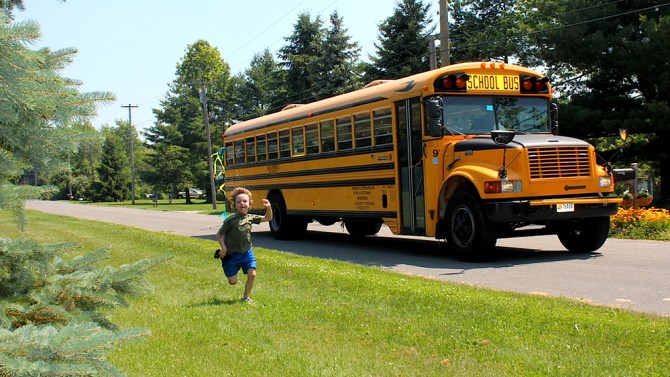Guest Post by Kim A. Snyder
Chronicling the aftermath of the Sandy Hook Elementary School massacre was without a doubt the most daunting endeavor I’ve ever undertaken in my twenty years as a filmmaker. Rather than something I chased, I often felt like the story chased me. Along the way, it repelled me, obsessed me, and haunted me. This still remains true, and likely always will.
The process of directing the “Newtown” documentary was, in a sense a four-year memorial, and our collaborators — survivors of the unimaginable — became a testament to untested boundaries of human resilience.
There were objectives, but no clear agenda other than to bear witness for those who felt compelled to do so, to explore the emotional landscape of grief and trauma, and to render community as victim in the wake of mass gun violence.
In a delicate building of trust with many in this fiercely proud and private little town, there were unspoken rules that organically revealed themselves:
• Respect boundaries: Never ask twice
• Authenticity: Don’t censor what you say for fear of saying the wrong thing.
• Flexibility: To experience trauma is to undergo an ultimate loss of control, and so we learned to offer many choices at any given time as to how to proceed. This meant giving way to complete uncertainty over schedule.
• No reenactments: We didn’t want anything theatrical or fictionalized. Little did I know there would be naysayers who deny that the massacre ever occurred.
• No mention of the shooter’s name: We stayed consistent with the community’s point of view in not wanting to give notoriety.
• Presence of the camera should not trump the community’s need for privacy: In the first year, we often left the subjects completely alone to bear witness during stark testimonial interviews.
The greatest risk was the understanding and acceptance that treading through the aftermath of this town was a field of emotional landmines. As careful as one might step, there was certain to be something that was valid for some but not for all. This is the way most things went and go in general for traumatized communities like Newtown.
And then there was the responsibility and trust to build with the ultimate audience. Sometimes the best way to reach people is to resist preaching. Trust in the reality was its own advocacy.
The visceral reactions to the unembellished testimony of “Newtown” have rendered emotions that generally range from retriggered grief to anger to inspired activism.
Through the universal lens of grief and trauma, diverse viewers relate to the complex underlying issues, whether it be from the club of suburban communities traumatized by mass shootings — of which there’s been 1000+ since Newtown — or those who’ve experienced the unabated toll of urban gun violence, or those impacted by the 2/3 of gun deaths caused by suicide that often occur in the rural heartland.
“If nothing happened after the slaughter of 20 first graders and their 6 educators in Sandy Hook, nothing will.” We heard that sentiment countless times in the hundreds of screenings we’ve attended since the film’s premiere at Sundance last year.
Our Newtown collaborators who often travel with us remind us that the conversation is changing. Joining the ranks of victim advocates, the voices of the very sub-communities represented in “Newtown” — doctors, educators, clergy, law enforcement and emergency responders, and youth, all show evidence of grassroots movement.
The conversation is also changing in places you might not expect. Responsible gun owners, including NRA members, have on numerous occasions responded to the film by saying, “You’re going to reach guys like me.” So, through shared empathy, maybe there is hope for civil discourse.
If our collaborators from Newtown can carry on the mantra to transform tragedy into meaning, we owe it to them and the greater community to join ranks. In short, “we are all Newtown.”
“Newtown” is available now on iTunes and On Demand.
Kim A. Snyder has directed over a dozen documentary shorts. Her credits include “Duke Riley Goes to China,” “Welcome to Shelbyville,” and “Crossing Midnight.”







